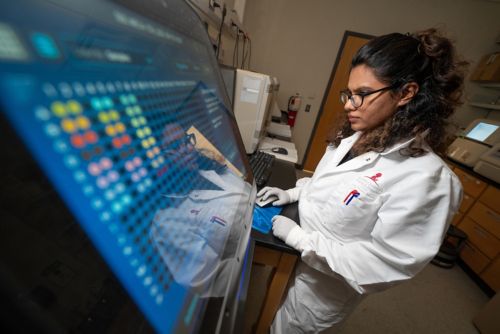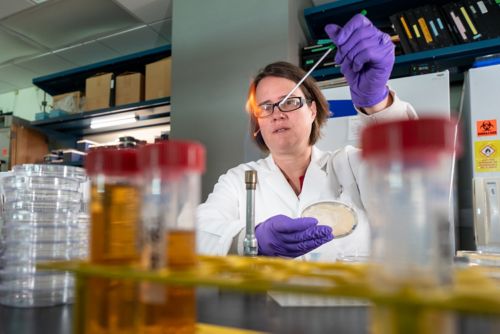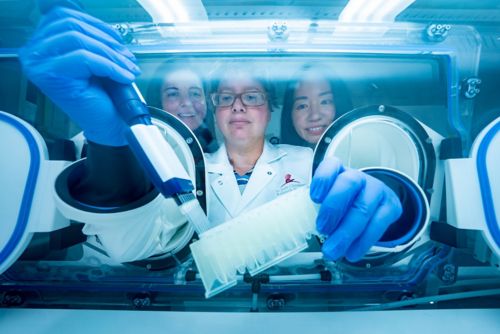St. Jude Family of Websites
Explore our cutting edge research, world-class patient care, career opportunities and more.
St. Jude Children's Research Hospital Home

- Fundraising
St. Jude Family of Websites
Explore our cutting edge research, world-class patient care, career opportunities and more.
St. Jude Children's Research Hospital Home

- Fundraising
Margolis Lab
Advancing the understanding of beneficial bacteria that prevent infections in immunocompromised pediatric patients
About the Margolis lab
Humans host a complex microbiota, including beneficial commensal bacteria that enhance immune defenses and prevent colonization by harmful, antibiotic-resistant bacteria. Our laboratory focuses on developing strategies to reduce the colonization and evolution of multidrug resistant organisms in immunocompromised patients by advancing our understanding of microbial interactions.

Our research summary
To understand the drivers behind multidrug resistant organism (MDRO) colonization in immunocompromised hosts, we take a multifaceted research approach. Our laboratory moves between human datasets and in vivo and in vitro model systems to study the pediatric microbiota, host-bacterial interactions, resistance evolution, and responses to cancer/antibiotic treatments. This approach aims to identify which clinical treatments place patients at risk and discover beneficial bacteria that reduce infection risk in immunocompromised pediatric patients.

Disturbances on microbial communities
The various clinical treatments at St. Jude- such as chemotherapy, radiation, antibiotics, diet changes, etc.- can disturb patients’ microbial communities. Our interest is understanding how these disturbances select for antibiotic resistance or alter the microbial-host interactions. A key focus is on whether changes in microbial communities can predict infection, graft versus host disease and other outcomes in cancer and sickle cell anemia patients.

Microbial colonization resistance to multidrug resistant bacteria
One consequence of the disruption of cancer and antibiotic treatments on St Jude patients’ microbial communities, is it weakens their defense against multidrug resistant bacteria. We aim to understand how multidrug resistant bacteria overcome this barrier and how commensal bacteria can outcompete or inhibit them.

Our research begins with analyzing human big data to guide in vivo and in vitro experiments, focusing on host-bacteria interactions in normal and immunocompromised environments. We use Vancomycin Resistant Enterococcus faecium as a model for multidrug resistant organism colonization due to its link to poor outcomes. Our work spans multiple disciplines- including ecology, bioinformatics, microbiology, immunology- and is built on extensive collaboration with clinicians and statisticians at St. Jude.
Publications
Contact us
Ellie Margolis, MD, PhD
Assistant Member
Department of Infectious Diseases
MS 320, Room E8002
St. Jude Children's Research Hospital

Memphis, TN, 38105-3678 USA GET DIRECTIONS